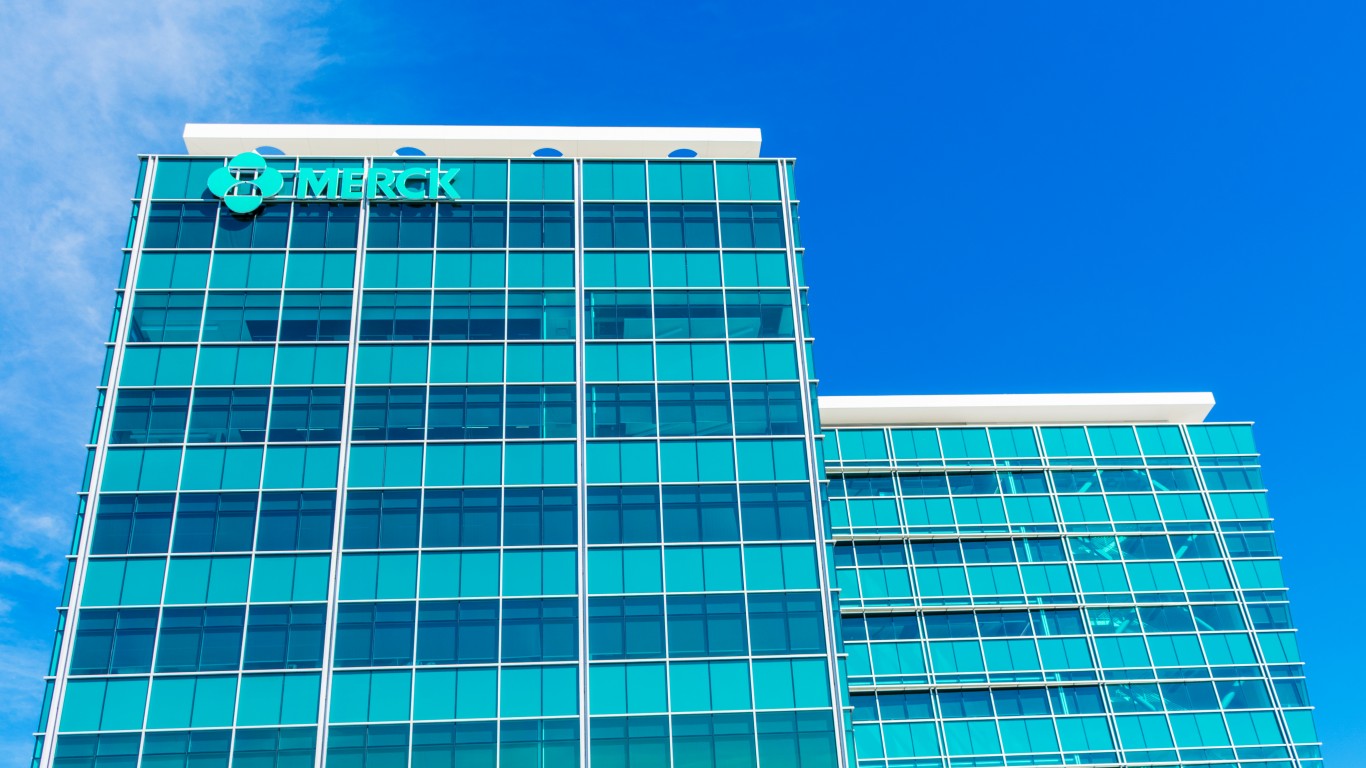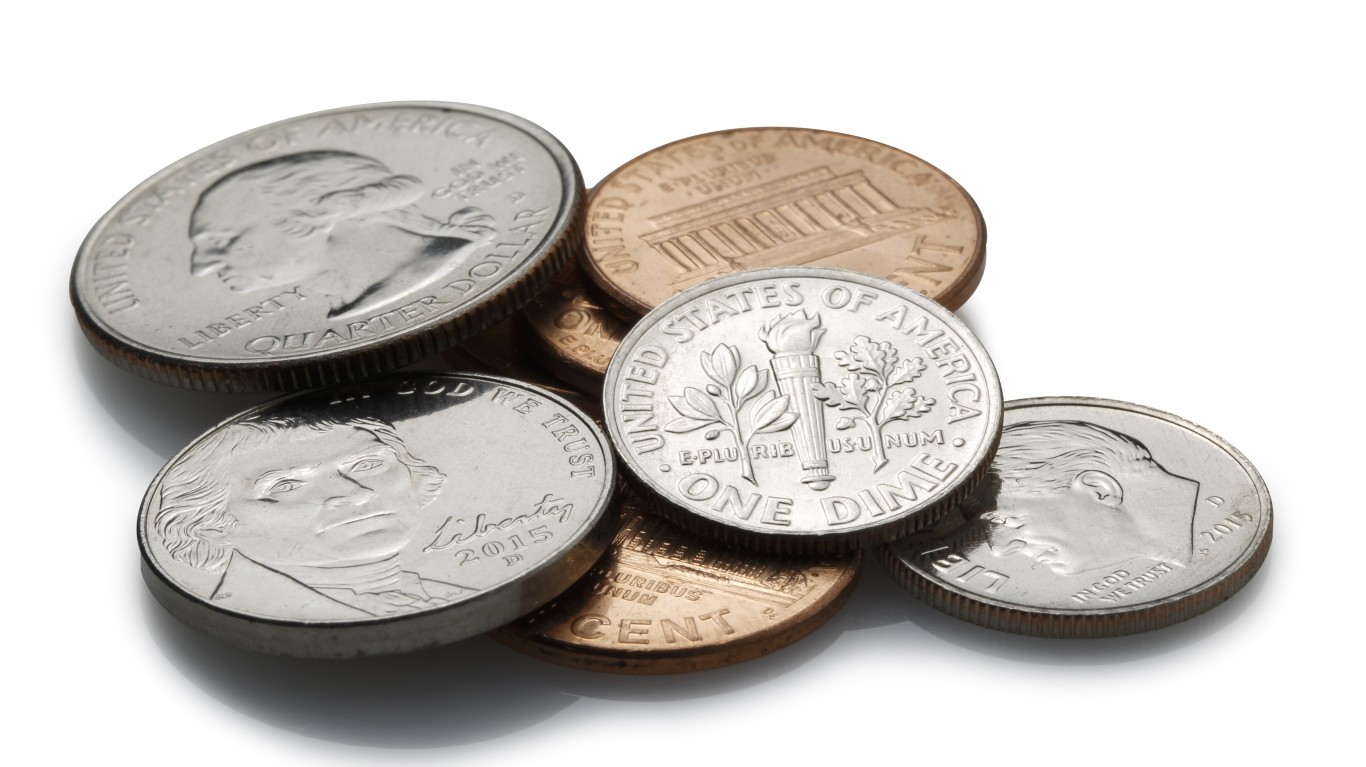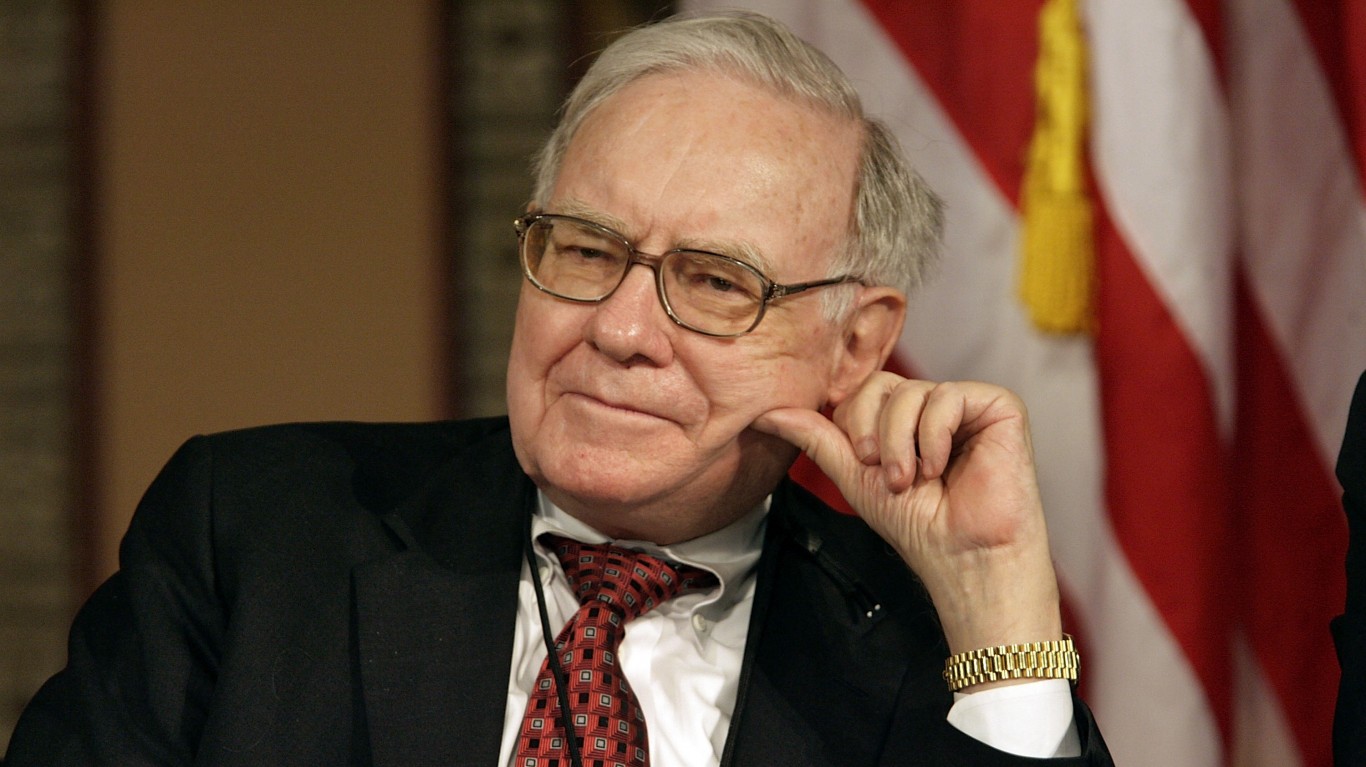
Merck & Co. Inc. (NYSE: MRK) is rewarding its shareholders once again with a quarterly dividend of $0.81 per share, payable on Wednesday, Jan. 8. That is over 5% more than the prior payout. The company completed a handful of acquisitions in the past year and recently made a notable deal to get in on the weight-loss treatment trend. The ongoing dividend payment underscores the management’s commitment to delivering consistent value to investors.
24/7 Wall St. Key Points:
-
Merck & Co. Inc. (NYSE: MRK) just rewarded its shareholders again with a dividend hike.
-
This Dow stock has come with a quarterly dividend for almost two decades.
-
Take this quiz to see if you’re on track to retire. (sponsored)
Why Investors Like Dividends

Investors favor dividend stocks for two main reasons. The first is that they offer enticing total return potential. Total return is a comprehensive measure of investment performance that includes interest, capital gains, dividends, and distributions realized over time. In other words, the total return on an investment or a portfolio consists of income and stock appreciation. It is one of the most effective ways to boost the prospects of overall investing success.
Dividend stocks can also provide investors with a steady, reliable stream of passive income. Passive income is money that is earned with little to no ongoing effort, usually from assets that generate cash flow. This income can come from a variety of sources, including stock dividends. Generating passive income is a desirable financial strategy for those seeking to diversify their income streams or achieve financial independence.
Merck’s Dividend

Merck has paid a quarterly dividend since 2007, when the payout was $0.38 a share. The dividend has not been reduced in that time. The current dividend yield is about 3.2%, which is better than the industry and sector averages. However, it is lower than those of some of the competitors listed below.
Merck’s share price has grown by more than 133% since 2007 as well, offering investors some growth along with the income.
Merck, the Company

This healthcare company operates worldwide through the following two segments.
The Pharmaceutical segment offers human health pharmaceutical products in the areas of oncology, hospital acute care, immunology, neuroscience, virology, cardiovascular, and diabetes. Brands include Keytruda, Bridion, Adempas, Lagevrio, Belsomra, Simponi, and Januvia. It also offers preventive pediatric, adolescent, and adult vaccine products under the Gardasil, ProQuad, M-M-R II, Varivax, RotaTeq, Live Oral, Vaxneuvance, Pneumovax 23, and Vaqta brands.
The Animal Health segment discovers, develops, manufactures, and markets veterinary pharmaceuticals, vaccines, and health management solutions and services, as well as digitally connected identification, traceability, and monitoring products.
Merck has development and commercialization agreements with AstraZeneca, Daiichi Sankyo, and LaNova. It also has collaboration agreements with Bayer, Eisai, Moderna, and Ridgeback Biotherapeutics.
The company was founded in 1891 and now is headquartered in Rahway, New Jersey, which is in the New York City metropolitan area. The current incarnation of Merck went public in January of 1978. Now it competes with or is similar to, among others:
- AbbVie Inc. (NYSE: ABBV)
- Bristol-Myers Squibb Co. (NYSE: BMY)
- Eli Lilly and Co. (NYSE: LLY)
- GSK PLC (NYSE: GSK)
- Pfizer Inc. (NYSE: PFE)
The company just purchased a vaccine facility in Ireland, and it saw a hypertension treatment approved in the United Kingdom. It recently inked a $2 billion GLP-1 deal, and its Keytruda received a key approval in China. Last year, it completed acquisitions of Abceutics, EyeBio, Harpoon Therapeutics, and Modifi Biosciences.
Merck, the Stock

Shares of this Dow Jones industrial component are almost 33% higher than five years ago, underperforming the broader markets. In the past six months, the stock has pulled back 17% or so. Shares hit a 52-week low of $94.48 in November, but the mean price target currently is up at $128.73. That means that Wall Street sees about 36% upside in the coming year. The consensus recommendation is to buy shares, including five Strong Buy recommendations. Note though that BMO Capital downgraded the stock to Market Perform late last month.
The stock remains popular with hedge funds and is favored by the likes of Ray Dalios, Ken Griffins, and David E. Shaw. Institutional investors hold more than 79% of the shares. BlackRock, State Street, and Vanguard have notable stakes. Note that about 32 million shares, or more than 1% of the float, are held short. Also, there have been no insider transactions in the past few months.
Three Surprising Things Billionaires Look for in Dividend Stocks
The Average American Has No Idea How Much Money You Can Make Today (Sponsor)
The last few years made people forget how much banks and CD’s can pay. Meanwhile, interest rates have spiked and many can afford to pay you much more, but most are keeping yields low and hoping you won’t notice.
But there is good news. To win qualified customers, some accounts are paying almost 10x the national average! That’s an incredible way to keep your money safe and earn more at the same time. Our top pick for high yield savings accounts includes other benefits as well. You can earn up to 3.80% with a Checking & Savings Account today Sign up and get up to $300 with direct deposit. No account fees. FDIC Insured.
Click here to see how much more you could be earning on your savings today. It takes just a few minutes to open an account to make your money work for you.
Thank you for reading! Have some feedback for us?
Contact the 24/7 Wall St. editorial team.







